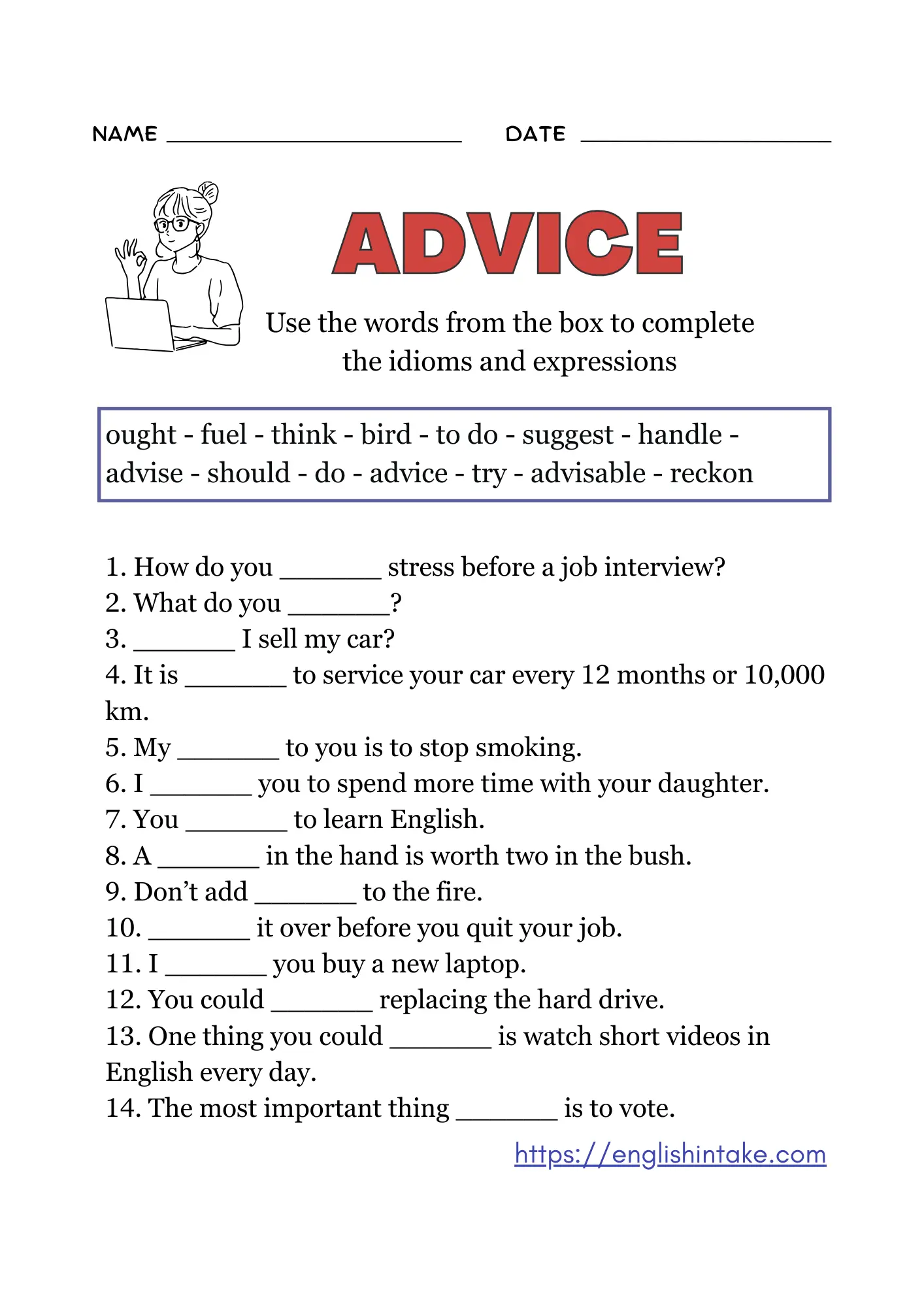In these exercises, you will learn different ways to give or ask for advice. I have included many idioms to help you speak like a native speaker. Try to use them in a sentence. Answers and a worksheet are also available.
1. Exercise 1: giving advice
Use the correct word from the box to complete each sentence.
1. If I you, I wouldn’t break up with her.
If I were you, I wouldn’t break up with her.
2. to talk to her.
Try to talk to her.
3. Ithat you talk about it with your parents.
I suggest that you talk about it with your parents.
4. I’m not convinced youdo that.
I’m not convinced you should do that.
5. You’dgo now before it gets dark.
You’d better go now before it gets dark.
6. Why go to the dentist?
Why don’t you go to the dentist?
7. How about to the cinema on Saturday?
How about going to the cinema on Saturday?
8. It would be a to back up your data.
It would be a good idea to back up your data.
9. Bewith your car in this neighbourhood.
Be careful with your car in this neighbourhood.
10. Makeyou lock the door before you leave.
Make sure you lock the door before you leave.
2. Exercise 2: asking for advice
Fill in the blanks with the correct word from the box.
1. WhatI do?
What should I do?
2. What do youI should do?
What do you think I should do?
3. Can you give me some?
Can you give me some advice?
4. Could youme on the best way to raise a teenager?
Could you advise me on the best way to raise a teenager?
5. I’dyour advice on my job interview.
I’d like your advice on my next interview.
6. Isome advice about losing weight.
I need some advice about losing weight.
7. Whatyou do if you were me?
What would you do if you were me?
8. Do you have any?
Do you have any suggestions?
9. What do you?
What do you recommend?
10. How would you with a situation like this?
How would you deal with a situation like this?
3. Exercise 3: idioms
Complete the idioms with the correct words.
1. Ais worth a thousand words.
A picture is worth a thousand words.
2. Look before you.
3. Don’t bite off more than you can.
4. It’s betterthan sorry.
5. An of prevention is worth a pound of cure.
6. Actionslouder than words.
7. my words, he will cause trouble.
Mark my words, he will cause trouble.
8. Don’t count your chickens before they.
9. Rome wasn’tin a day.
10. The early bird catches the.
4. Worksheet
In this worksheet, I have included additional expressions and idioms to expand your vocabulary.

1. How do you handle stress before a job interview?
2. What do you reckon?
3. Should I sell my car?
4. It is advisable to service your car every 12 months or 10,000 km.
5. My advice to you is to stop smoking.
6. I advise you to spend more time with your daughter.
7. You ought to learn English.
8. A bird in the hand is worth two in the bush.
9. Don’t add fuel to the fire.
10. Think it over before you quit your job.
11. I suggest you buy a new laptop.
12. You could try replacing the hard drive.
13. One thing you could do is watch short videos in English every day.
14. The most important thing to do is to vote.

